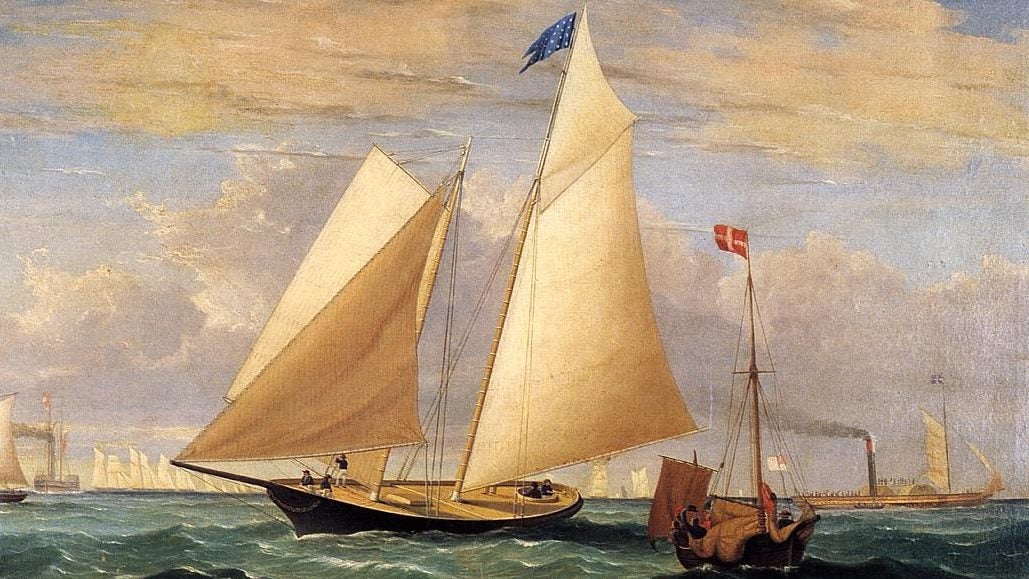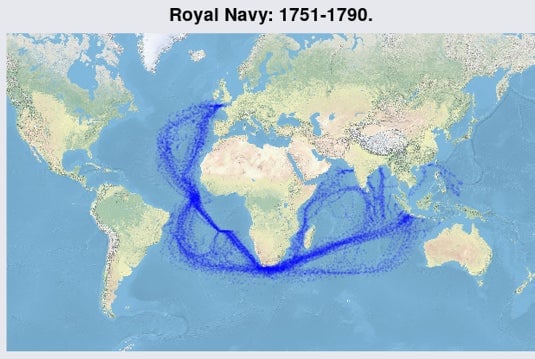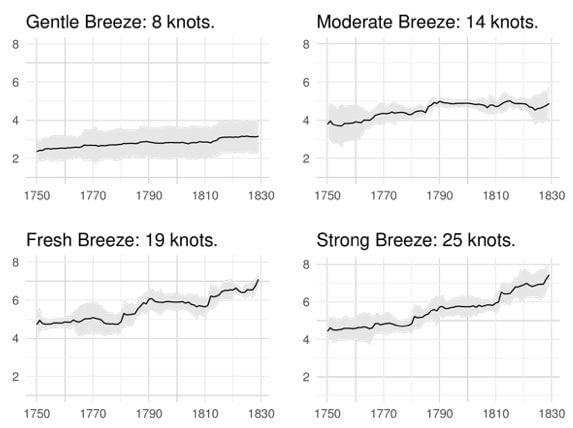The speed of Europe’s 18th-century sailing ships is revamping history’s view of the Industrial Revolution
Economists have long seen the Industrial Revolution as a transformation of belching coal stacks and fiery furnaces. That’s not wrong, but it misses the sweeping changes that occurred across the British economy, setting the stage for our modern world.


Economists have long seen the Industrial Revolution as a transformation of belching coal stacks and fiery furnaces. That’s not wrong, but it misses the sweeping changes that occurred across the British economy, setting the stage for our modern world.
Two economists from the University College Dublin wanted to see how 18th century British advancements were finding their way into other sectors. To get this data, Morgan Kelly and Cormac Ó Gráda reconstructed oceanic climate conditions from ships’ daily logs between 1750 and 1850. They drew on 280,000 log book entries from the British Royal Navy and East India Company with location, wind speed, and direction data collected by climate researchers in earlier research. This allowed Kelly and Gráda to estimate the ships’ velocities over a century of global exploration and trade.

In a a paper published this month, the two economists found that the technology of British sailing ships raced ahead during this time. Changes in hull design such as copper plating (reducing drag from fouling weed and barnacles), efficient sails, and iron joints and bolts that replaced wooden ones steadily improved sailing speeds, and sea worthiness.
Between 1750 and 1830, the speed of British ships rose by about 50%. Interestingly, the sailing performance of ships from countries where industrialization was less advanced such as the Netherlands and Spain lagged significantly behind. Dutch vessels were sailing to the East Indies almost as slowly in 1790 as in 1600, the authors state. Most gains for the British ships were at high winds blowing at least 25 knots (28.7 mph), an advance that gave the new ships swift sturdiness in treacherous waters in the Atlantic and rounding Africa’s blustery Cape of Good Hope on the way to lucrative trading grounds.

Although economic historians have portrayed the Industrial Revolution of the late 18th century as “anything but revolutionary” outside sectors such as cotton, iron, and steam, the authors argue ”a growing literature now highlights how widespread progress occurred across the British economy.” Oceanic freight by sail can now take its place alongside the rest of the transformations aided by the Industrial Revolution.